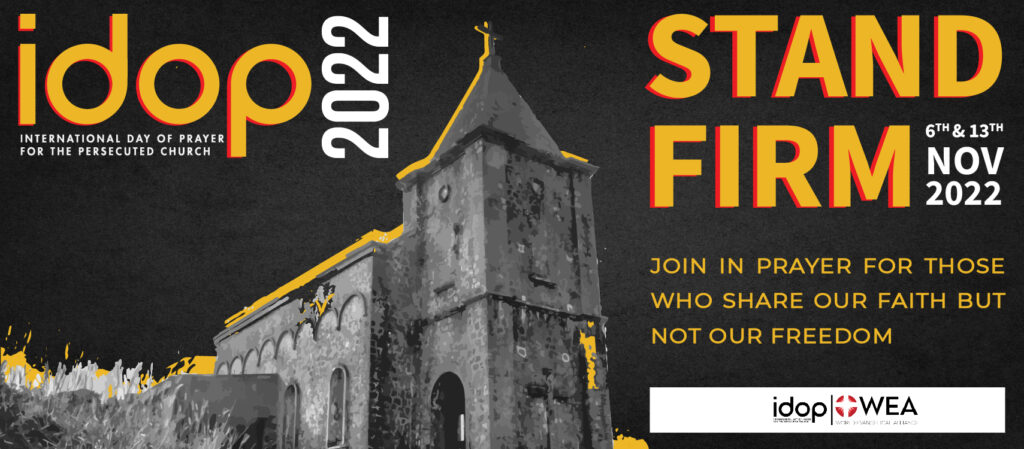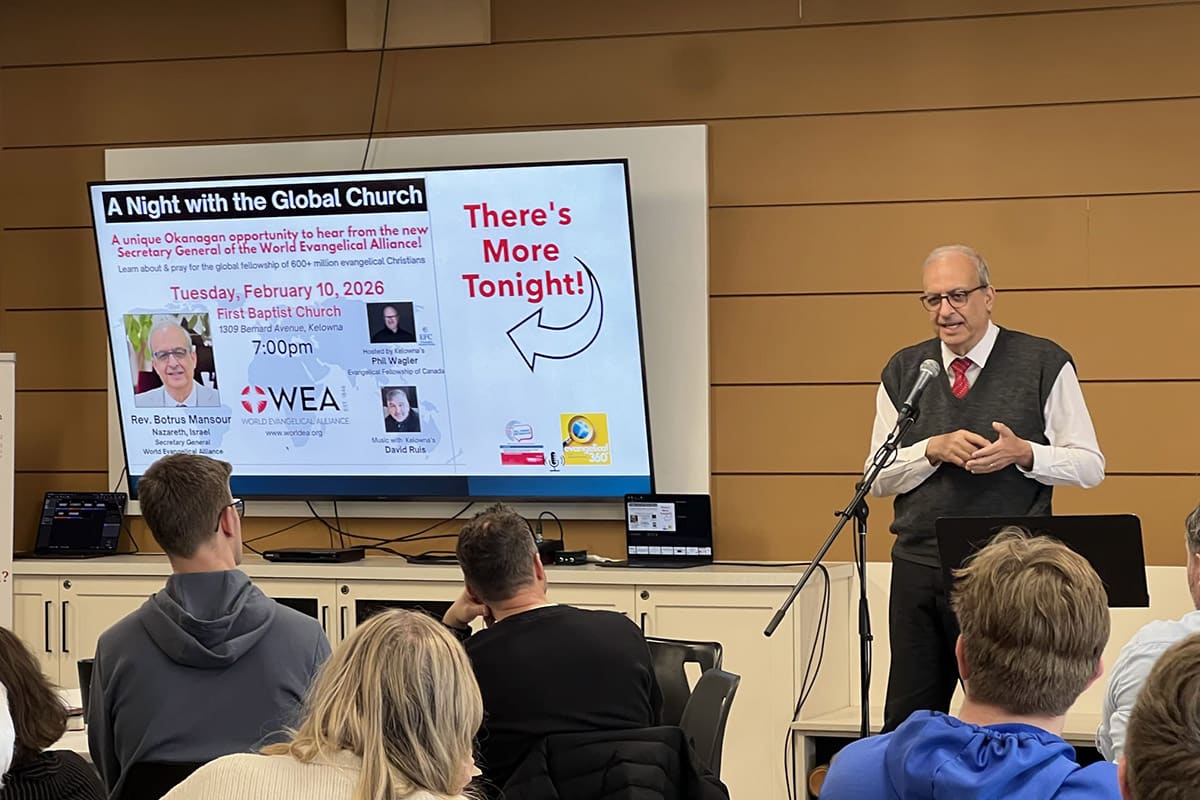One year after Afghanistan fell back into Taliban control, that troubled nation is again in the headlines. Afghanistan has been named one of this year’s four focus countries for the World Evangelical Alliance’s International Day of Prayer for the Persecuted Church (IDOP), along with Algeria, India, and Sri Lanka.
The WEA made the announcement in conjunction with the United Nations’ International Day Commemorating Victims of Acts of Violence Based on Religion or Belief, which is marked on August 22.

“The WEA strongly condemns violence against any person or group based on their faith. We advocate for religious freedom for everyone, everywhere, all the time,” said WEA Secretary General Thomas Schirrmacher, who is also co-founder of the International Institute for Religious Freedom.
Around the world, over 360 million Christians—or 1 of every 7 globally—face persecution for their faith. This can include violence from government, the local community or within the family.
The WEA collaborates with the United Nations, the Religious Liberty Partnership, and global and national leaders of all faiths to end restrictions on religious freedom, which is guaranteed by the UN Universal Declaration of Human Rights.
“The WEA regularly calls on governments around the world to live up to international standards of human rights,” said Janet Epp Buckingham, Director of Global Advocacy. “This means protecting religious minorities and allowing everyone to practice their religion freely. We will continue to give voice to the voiceless at the highest levels of power.”
Every year, the WEA holds IDOP in November, calling on Christians around the world to pray for those who are persecuted for their faith or beliefs.
“Every time I ask a persecuted Christian what we can do for them, the answer is always the same: Please pray for us,” said Godfrey Yogarajah, the WEA’s Global Ambassador for Religious Freedom.
“Over the years,” Schirrmacher added, “IDOP has served as a clarion call for the Church to remember those who face persecution in different parts of the world. In so doing, IDOP has also served as a platform to amplify the challenges faced by persecuted Christians and draw global attention to their stories.”
The situation in the four focus countries for this year’s IDOP is as follows:
Afghanistan is the most dangerous place in the world to be a Christian. When the Taliban took over a year ago, most of the small Christian population had to flee or go into hiding.
In Algeria, a Muslim state in North Africa, churches have been forced to close and church leaders have been charged with blasphemy and proselytizing when conducting normal church activities.
India is a majority-Hindu nation where Christianity has been under increasing pressure. Social and family pressure on Christians is on the rise. Governments in 11 Indian states have introduced anti-conversion laws, making it a crime for Christians to share their faith.
Sri Lanka is a majority-Buddhist state where Christians have faced violence for many years. This includes incidents of discrimination and intimidation by state officials and instances of harassment and violence by members of the community. Sri Lanka currently faces the additional challenge of a financial crisis.
For more information on the International Day of Prayer for the Persecuted Church, visit idop.org.





Stay Connected